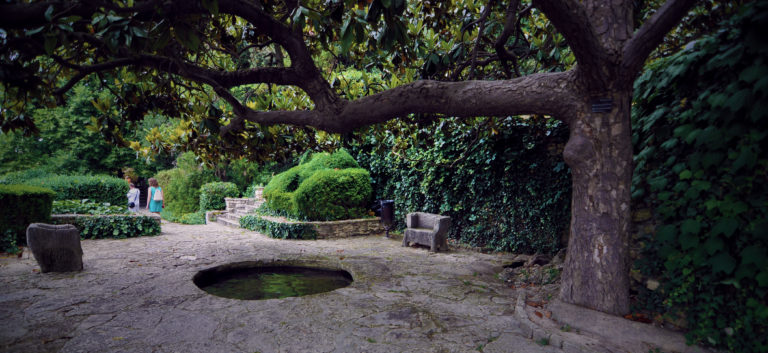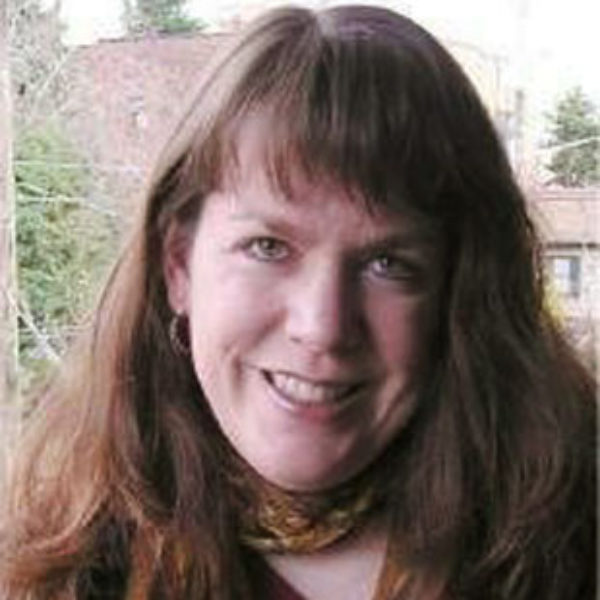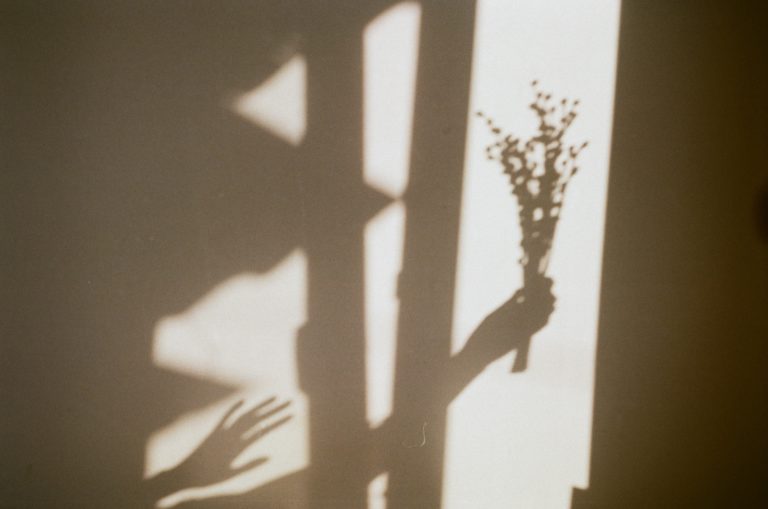
The magnificent grounds of Balchik Palace in Bulgaria. Image by fusion-of-horizons/Flickr (CC BY 2.0)..
The Monk Manifesto: Seven Principles for Living with Deep Intention
Monk: from the Greek monachos meaning single or solitary. A monk in the world does not live apart but immersed in the everyday with a single-hearted and undivided presence, always striving for greater wholeness and integrity.
Manifesto: from the Latin for clear, means a public declaration of principles and intentions.
Monk Manifesto: A public expression of your commitment to live a compassionate, contemplative, and creative life.
The Monk Manifesto
- I commit to finding moments each day for silence and solitude, to make space for another voice to be heard, and to resist a culture of noise and constant stimulation.
- I commit to radical acts of hospitality by welcoming the stranger both without and within. I recognize that when I make space inside my heart for the unclaimed parts of myself, I cultivate compassion and the ability to accept those places in others.
- I commit to cultivating community by finding kindred spirits along the path, soul friends with whom I can share my deepest longings, and mentors who can offer guidance and wisdom for the journey.
- I commit to cultivating awareness of my kinship with creation and a healthy asceticism by discerning my use of energy and things, letting go of what does not help nature to flourish.
- I commit to bringing myself fully present to the work I do, whether paid or unpaid, holding a heart of gratitude for the ability to express my gifts in the world in meaningful ways.
- I commit to rhythms of rest and renewal through the regular practice of Sabbath and resist a culture of busyness that measures my worth by what I do.
- I commit to a lifetime of ongoing conversion and transformation, recognizing that I am always on a journey with both gifts and limitations.
The idea for the Monk Manifesto emerged several months ago while I was away on a retreat. Last spring was a very full season of my life, and I was claiming a few days of silence to listen. I was in a threshold space, moving into my own work more fully. I knew my call was to spread ways of being a monk in the world to as many people as I could.
I wanted people to see that there are companions who also hunger for ways of living with deep intention. I wanted to start a movement of monks. I don’t know exactly what it will look like, but, like most things in my life that are life-giving, it begins by following a thread, a sense of awe at the invitation being offered to me, even if I can only see the edges.

I attended the World Congress of Benedictine Oblates in Rome last October and our theme was inter-religious dialogue. I am very aware that I have far more in common with my brothers and sisters who are committed to a contemplative way of life no matter their religion (or perhaps even none) than I am with those in my own faith tradition who use religion to exclude and draw ever-stronger boundaries around what (or who) is holy and what (or who) is not. My desire is to discover where we might find companions across perceived boundaries.
These principles emerged out of my own inner journey of living the Benedictine way (which is my primary spiritual community and commitment) and my outer journey of teaching about various strands of Christian monasticism (including Benedictine, Celtic, and desert traditions). However each of the principles I set forth can be found across contemplative traditions.
Like many people, my practices cross boundaries and include yoga and a love of Jewish rituals. What would it be like to create a common language about what it means to live in meaningful ways in the modern world?
Each principle is the umbrella for a whole set of practices. Practices help us to embody new ways of being. As we commit to living into a particular practice, our hearts are shaped by the daily engagement. Practices provide us with sacred containers through which we can foster presence to our experience and cultivate a radical sense of compassion for ourselves, our community, and creation.
I purposely selected the word “resistance” because it is a concept which roots me in a tradition and practice of nonviolence where we stand in resistance to the powers of destruction at work all around us. Some of the violence is overt: daily abuse, neglect, loss of human life, the unraveling of ecosystems. But much of the violence is subtle, like the violence we participate in each day as we push our bodies to the point of exhaustion and our spirits to the place of despair.
I believe deeply that we need both a sacred yes and a sacred no in our lives — things which we wholeheartedly embrace and those which we create boundaries around of what is not life-giving. For me, naming both is a practice of balance and awareness.
The Monk Manifesto is not meant to be exhaustive, but there is fruitfulness in claiming what is important in a given moment of time. There are many things that could be added, but part of its power is its conciseness. I hope reading it prompts your own reflection on how you would articulate your declaration of integrated living.


Share your reflection